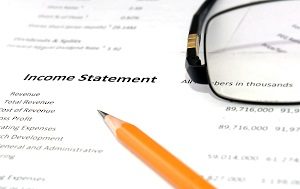Much like a business, a functioning community incurs costs and earns revenue. As such, it’s important to set up HOA accounting standards to maintain accurate financial reporting.
Now, accounting can be quite stressful for community managers to navigate. With so much money going in and out, sometimes on a daily basis, it can be a challenge to stay on top of it all. Furthermore, HOAs must file taxes, which is nearly impossible when you don’t have your community’s expenses organized from the very start. To help you out, here are the HOA accounting standards you must consider.
HOA Accounting Standards Explained
An accounting standard is a set of procedures, policies, and principles specifying how accounting transactions must be recorded and reported. In the United States, the most commonly used set of accounting standards is the Generally Accepted Accounting Principles (GAAP).
HOA Accounting is the tracking and recording of all financial activity for the purpose of reporting. It’s a vital part of managing a homeowners association. Keeping a record of your association’s cash flow provides you with a thorough understanding of where you stand financially. Yet, accounting for homeowners associations isn’t just writing down your expenses in a notebook. When setting up your HOA accounting standards, there are some key practices and reports you must include.
Essential Monthly HOA Financial Reports
Here are the financial reports an HOA must generate every month:
1. Balance Sheet
For an impression of your association’s financial condition, one must turn to the Balance Sheet. This financial report is comprised of three main components: assets, liabilities, and owner’s (or shareholders’) equity. When making this report, the total assets must always be equal to the total liabilities plus equity, thus, making them “balanced.”
Due to the complicated nature of this report, many board members find it to be the most difficult to write. However, it’s not that hard when you understand the concepts behind it.
Listed under assets are cash, accounts receivable (amounts people owe you), inventory, fixed assets, and the like. The assets portion must also include your association’s remaining balance on unused insurances. With every month that passes, the value of the unused insurances decreases.
On the other hand, liabilities are where you record amounts you owe (i.e. accounts payable). This includes unpaid utilities, loans, and accrued wages. Additionally, this is where you’d list prepaid assessments. While you may have already received the money, prepaid assessments have yet to be earned.
Finally, equity refers to accumulated profits and money from investors. For a homeowners association, it usually consists of retained earnings and the reserve account’s remaining balance.
In essence, the Balance Sheet gives you a look at your association’s net worth. To calculate this, the equation is
ASSETS + LIABILITIES = EQUITY
2. General Ledger
As one of the main aspects of bookkeeping, maintaining a General Ledger must be intrinsic to HOA accounting rules. A General Ledger holds the accounting records for all transactions within the association. The entries must be organized in order of account number — which is uniquely assigned to each account title (chart of accounts) — and by date.
A General Ledger serves as your method of tracking all financial transactions. All accounts must be recorded here. Assets, liabilities, equity, revenue, expense, gain, and loss — anything related to money. Each one must consist of a debit and credit entry. The total debit must be equal to the total credit to make it balanced.
A General Ledger functions as the master record on which all other reports are based. For this reason, any errors here must be immediately corrected.
3. Statement of Income & Expense
 Out of all the HOA financial statements, the Statement of Income & Expense is arguably the most crucial for proper money management. This report follows the equation:
Out of all the HOA financial statements, the Statement of Income & Expense is arguably the most crucial for proper money management. This report follows the equation:
TOTAL INCOME – TOTAL EXPENSES = TOTAL PROFIT/LOSS.
Basically, it shows you whether or not you made money in the past month.
Additionally, it breaks down all of the association’s income and expenses. This gives you a detailed look at where your money is going. The Statement of Income & Expense must also include year-to-date figures. That way, it can depict your HOA’s financial standing for both the month and the year thus far.
Furthermore, the board can use this report to compare actual expenses incurred versus the budget allocated. Based on these numbers, you can focus on problem areas and adjust accordingly. Whether that means raising the budget for lawn care, increasing assessments, or looking for a cheaper vendor is entirely up to you.
4. Accounts Payable Report
It’s important for any homeowners association to keep up-to-date on their payments to vendors. After all, you wouldn’t want to develop a reputation as a bad creditor. This is where the Accounts Payable Report comes in.
The Accounts Payable report shows you all of the association’s unpaid expenses. The format typically consists of the vendors owed, the terms of payment, and the amounts owed. From here, you can determine whether the association has the funds to pay for these expenses. At the very least, this report serves as a reminder of sorts to pay your dues on time.
5. Account Delinquency Report
If an Accounts Payable Report tracks your association’s debts, an Accounts Delinquency Report tracks amounts owed to the association. Let’s be honest — collecting monthly fees and assessments from homeowners can be tough. However, it can be twice as difficult when you have no records of their debts.
The Accounts Delinquency Report shows you the association’s total accounts receivables. It includes a list of residents who are late on their payments, as well as the amounts they owe and how long the amounts have remained unpaid. Amounts are sorted into four sections: current, over 30, over 60, and over 90. Current refers to amounts aged below 30 days. The other three sections refer to amounts over the respective number of days.
Some people also refer to this report as the Accounts Receivables Report. While they are different in name, they are similar in function. With this report in hand, collection can be a pinch.
6. Cash Disbursements Ledger
Also known as a Check Register, a Cash Disbursements Ledger is vital to any homeowners association accounting rules. To put it plainly, this ledger shows the board members an official list of money flowing out of the association. It gives you a comprehensive and up-to-date look at your expenditures. This includes cash transactions and written checks.
Information on this report must be detailed. For cash transactions, this includes the date, payee, amount, and description. For checks, the check date, check number, payee, check amount, the invoice number, and a description of the expense are required. An Accounts Payable Report and Accounts Delinquency Report must also accompany the ledger.
Basis of Accounting for Your HOA Accounting Standards
The Basis of Accounting refers to the timing of recording financial transactions. Here are the three primary methods:
1. Cash Basis
 When using the Cash Basis for your HOA accounting standards, you only report revenues once actual cash has come in. Similarly, you only report expenses once money actually leaves the association. This leaves no room for Accounts Receivables Assessments Receivable, Prepaid Assessments, and Accounts Payables.
When using the Cash Basis for your HOA accounting standards, you only report revenues once actual cash has come in. Similarly, you only report expenses once money actually leaves the association. This leaves no room for Accounts Receivables Assessments Receivable, Prepaid Assessments, and Accounts Payables.
The Cash Basis doesn’t conform with GAAP, which means it’s an unacceptable method when preparing your official financial statements. However, you can still use it for interim reporting.
2. Accrual Basis
The Accrual Basis works in vast contrast to the Cash Basis of accounting. Using this method, you report revenues when they are earned as opposed to when money is received. For example, when assessments are due, the Balance Sheet shall reflect Assessments Receivable under assets even if residents have yet to pay. The same rule applies when reporting expenses. You can book them as soon as they are incurred instead of waiting until they are paid.
The Accrual Basis is the only method that conforms with GAAP. Therefore, it’s the only one you can use for official recording and reporting. This is also the basis of accounting that homeowner’s associations use.
3. Modified Accrual Basis
Finally, the Modified Accrual Basis (also known as Modified Cash Basis) is a combination of the first two methods. This practice uses the Accrual Basis for reporting revenues and the Cash Basis for reporting expenses. Like the Cash Basis, the Modified Accrual Basis doesn’t conform with GAAP. For this reason, you can only adopt this technique for interim or unofficial reporting.
Auditing Your HOA’s Financials
 An audit simply means a review of your association’s financials. In terms of how often you must perform an audit, that depends on your association’s governing documents.
An audit simply means a review of your association’s financials. In terms of how often you must perform an audit, that depends on your association’s governing documents.
Some require an annual audit, while others do not. The best recommendation, however, would be to do a yearly audit. This way, you can get a better look at your financial standing.
Audits require an outside opinion. Someone from outside the association must conduct them. This could be either your HOA management company or a Certified Public Accountant (CPA). A comprehensive audit involves the checking of records to ensure they comply with basic accounting principles.
Furthermore, your CPA will verify each transaction to confirm the accuracy of the details. This includes contacting debtors and creditors.
Do note that an audit differs from a compilation. A compilation only involves the collation and surface-level checking of records. It also differs from a review, which is a slightly superior form of compilation.
Applying HOA Accounting Standards
Every community must have HOA accounting standards in place. Your financials are only as reliable as the practices and procedures that define them. As the association’s treasurer, you’re responsible for keeping accurate records and financial reports. Without these tools, the entire community could very well fall apart.
While accounting is a process largely invisible to the rest of the community, it remains a fundamental pillar of success. Granted, it can be a challenging task to take on. This is where we come in. For professional help with your association’s finances, give us a call at (855) 238-8488 or email us at help@emspm.com.
RELATED ARTICLES:







